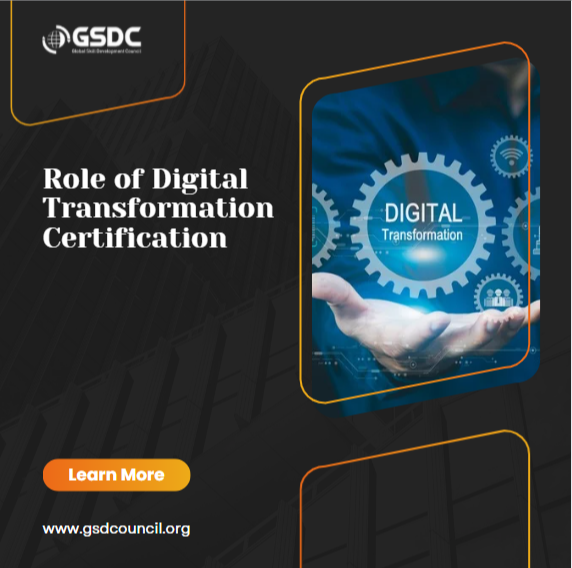
Digital change is no longer optional, it's essential. A strong digital strategy helps companies stay competitive, serve customers better, and move faster. That¨s why a digital transformation certification is becoming a key step for leaders, teams, and organizations that want to thrive in a fast-changing market.
Why certifications matter
A certification digital transformation program gives learners clear knowledge and a shared language. It moves learning from theory to practice by teaching tools, methods, and frameworks. When employees hold a digital transformation certificate, they can apply techniques like process automation, data-driven decision making, and cloud migration with confidence.
Skills employers need
Modern businesses need people who understand both technology and business. The best digital transformation certification focuses on practical skills: mapping customer journeys, creating measurable KPIs, managing change, and using analytics to guide decisions. These are the skills that reduce risk, speed up projects, and improve ROI.
Benefits for enterprises
Enterprises that invest in certified staff see real benefits. Certified digital transformation professional credentials create trusted internal experts who can lead cross-functional teams. This helps align IT, operations, and business strategy. A common language reduces friction and accelerates project delivery from pilot programs to full-scale rollout.
How certification supports culture change
Digital transformation is as much about people as it is about technology. A well-designed program teaches mindset shifts: experiment quickly, learn from failure, and prioritize customer outcomes.
Certification programs often include change-management practices that make adoption smoother across the company.
Choosing the right program
Not all programs are equal. Look for a curriculum that balances strategy and hands-on work. The best digital transformation certification includes case studies, real-world projects, and assessments that reflect business impact. Check for instructors with industry experience and recognized standards that validate the learning.
Measuring impact
Earning a digital transformation certificate is only the start. Track metrics like time-to-market, customer satisfaction, cost savings, and employee productivity to measure success. Certified employees should be able to tie their work to these results and show how digital initiatives improved outcomes.
Future-proof your workforce
As technology evolves, continuous learning matters. Certification creates a foundation and a way to upskill teams quickly and consistently. Organizations that prioritize skill-building will be more agile, better at innovation, and ready for new disruptions.
Practical steps companies can take include starting small with pilot projects, creating a centre of excellence to share best practices, and linking certification progress to career paths. Combining hands-on workshops with a formal digital transformation certificate helps skills stick and lets leaders measure return on investment.
Make the move: promote certification
A strong certification pathway builds confidence and shows measurable change. A good program includes mentoring, project reviews, and a practical assessment. Supporting staff to become a certified digital transformation professional is an investment that returns faster innovation and lower risk.
Take action: compare providers, review syllabi, and choose the best digital transformation certification that fits your needs. Enroll in a reputable program and start turning strategy into measurable results to build a future-ready enterprise today.















